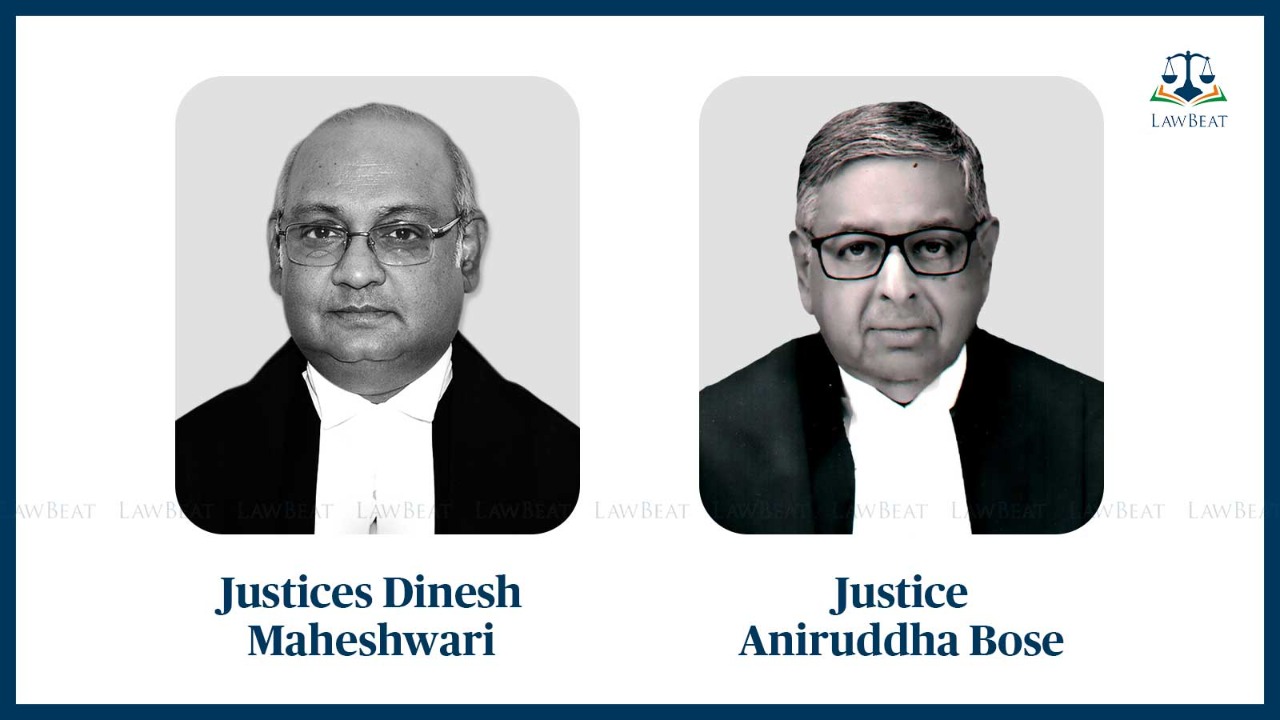When disposal of appeal is likely to take time and sentence is likely to be served out in meantime, accused may be released on bail: Top Court

The Supreme Court on Monday held that when the term of sentence awarded to an accused is such that, while the appeal is being heard, he may serve out his entire sentence, and disposal of the appeal is likely to take time, the accused may be ordered to be released on bail.
"If the appeal remains pending in due course and the appellant by that time serves out the sentence of imprisonment, and then, if there be any possibility of his acquittal or any modification of the conviction/sentence, the injury suffered by him would be practically irreparable...", held a bench of Justice Dinesh Maheshwari and Justice Aniruddha Bose.
One Jeetu Khatik approached the top court in an appeal against an order of the Chhattisgarh High Court declining the prayer for suspension of execution of sentence during the pendency of his Criminal Appeal.
As per the prosecution case, Khatik had allegedly "kidnapped a 9-year-old victim from the custody of her legal guardian and with an intention to outrage her modesty, used criminal force and with sexual intention, held her hand so as to forcefully take her to a place away from the road". The victim girl somehow got released and ran while shouting.
Additional Sessions Judge (F.T.C.), Manendragarh convicted Khatik under sections 363 and 354 of the Indian Penal Code and Section 8 of the Protection of Children from Sexual Offences (POCSO) Act, 2012. All the sentences were directed to run concurrently.
Before the High Court, Khatik had argued that "he was on bail during the trial but did not misuse his liberty and even after pronouncement of judgment, he was granted bail for a limited period. It was also submitted that the disposal of the appeal was likely to take some time and, therefore, the appellant may be released on bail."
The High Court, while dismissing Khatik's plea, made no comments on the merits of the case but then, ordered that the appeal be listed for hearing in due course.
Before the top court, it was argued that High Court failed to appreciate that the maximum sentence of imprisonment awarded in this matter is of three years and all the sentences are to run concurrently.
It was further added that the accused was likely to serve out the entire or substantial part of the sentence of imprisonment and, thereafter, even if the Appellate Court would be persuaded to reverse the order of conviction, the deprivation of liberty for all this time could never be undone.
Noting that the High Court ordered that the appeal be listed for hearing ‘in due course', the bench said,
"Obviously, the High Court has not found the appeal worth assigning a priority for hearing. That being the position, if the appeal is to be heard only on its turn, the likely scenario is that it would not be taken up for hearing immediately by the High Court. If the appeal remains pending in due course and the appellant by that time serves out the sentence of imprisonment, and then, if there be any possibility of his acquittal or any modification of the conviction/sentence, the injury suffered by him would be practically irreparable."
On further grounds that no other adverse reason to deny the relief to the appellant, like any criminal antecedents before the incident in question or any blame in the jail conduct, were found, the top court ordered that the execution of the remaining part of the sentence awarded to Khatik be suspended during the pendency of the appeal in the High Court.
Case Title: Jeetu Khatik v. State of Chhattisgarh
